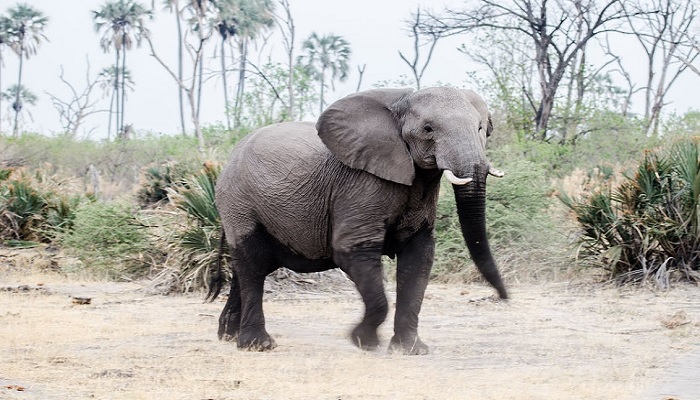
Africa continues to be an underrated place for tourists and heritage sites. The continent is known for its diverse cultures, cities, history, and parks. But due to deforestation, four million hectares of African forests are destroyed every year. As a result, 39% of all properties in Africa are in “Danger” mode on the World Heritage List.
To celebrate African World Heritage Day, here are six parks in the “Danger mode” which you can visit.
1. Lake Turkana National Parks, Kenya
This park region consists of Sibiloi National Park, the South Island, and the Central Island National Parks. These parks surround Lake Turkana, which is said to be the most saline and the world’s largest permanent desert lake.
Lots of archaeological and geographical discoveries happened in Lake Turkana. For example, fossils of different creatures such as Homo Habilis and Homo Erectus were found. These fossils proved that hominids lived near Lake Turkana over 4.2 million years ago.
However, there are some potential threats that put ‘Lake Turkana’ in the ‘Danger’ category. Many of these are climate-related, such as severe droughts and receding water levels. But some are more related to the built environment and inadequate tourism development.
2. Rainforests of the Atsinanana
The forests consist of six national parks located on the Eastern part of the island. There are over 173 bird species within these regions, with 18 of them on the IUCN Red List of Threatened Species. Moreover, there are at least 11,200 species of vascular plants and 160 species of amphibians that can’t be found outside of the country.
Unfortunately, there are plenty of conservation issues and threats. These include illegal logging, livestock grazing, hunting, and inadequate infrastructure development.
3. Niokolo-Koba National Park, Senegal
This park is located along the Gambia River, where there are large waterways, forests, ponds, and rocky slopes. Lots of wildlife can be spotted there, including chimpanzees, lions, and leopards.
However, issues that the national park face include population growth, poor soils, and endangered species.
4. Air and Tenere Natural Reserves, Negal
The natural reserve covers over 7 million hectares, making it one of the largest protected areas in Africa. There are two main zones: the mountain massifs of Air and the plains of the Tenere desert. Three antelopes living within the region are on IUCN’s Red List of threatened species; the Dorcus gazelle, Leptocere gazelle, and the Addax. Plenty of birds flock to the reserves as well.
Some issues which are prevalent for the Air and Tenere Natural Reserves include hunting and exploitation of wood, poaching and illegal grazing, and lack of surveillance for the property itself.
5. Mount Nimba Strict Nature Reserve
The mountains are located on the borders of Guinea, Liberia, and Cote d’Ivoire. There are plenty of species and plants within the forests and pastures on the mountains. However, some of the species living in the region are threatened or endangered, such as the chimpanzees and the toad of Mount Nimba.
Some other issues that place the site in the “Danger” category include increased demographic pressure, deforestation, and poaching.
So, How Can You Help?
If you’re looking to spend May 5, African World Heritage Day, by taking action and helping out with the sites, there are many ways to do so.
In regards to endangered species, you can donate to charities such as the Rainforest Foundation and Space for Giants. If you want to help out and volunteer, you can join a conservation project for one of the aforementioned reserves. Some of these are also available through the World Heritage Volunteers Campaign by UNESCO, which helps volunteers take an active role and protect the site while cooperating with multiple stakeholders.
Moreover, if you want to learn more about these sites, you can join the World Heritage Education Programme. This project gives activists a chance to voice their concerns and learn how to become involved in protecting natural and cultural heritage. There are plenty of partnerships throughout this program, including Earthwatch Institute.
Although May 5 is a day to celebrate African World Heritage Day, it also reminds us of the impacts of climate change and infrastructure development. Due to differences in climate, many species and plants from historical natural parks are affected. As a result, we should take action to conserve our natural sites, as they can never be forgotten.
Featured image via Kebs Visuals on Pexels